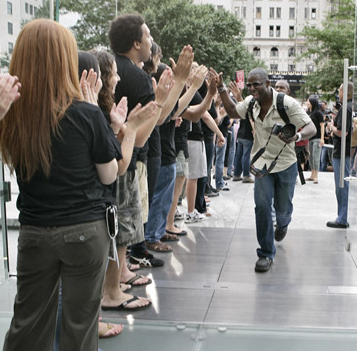September 10th
The Business of Design: Are our expectations changing?
Businessweek’s Bruce Nussbaum, in a recent talk he gave at Innovation Night at the Royal College of Art in London. Definitely worth the read. (although I don’t buy his notion that CEOs need to be designers)
“The second great trend that will soon have an impact on design is social networking. Social media is upending relationships between customers and corporations, brand owners and brand creators, consumers and producers, centralized authority and anarchistic periphery and—pay attention here—designers and their audiences. People want to design their own experiences, or at least have a big voice in it. With Web 2.0 technology and blogs, they get that voice. People are increasingly designing their own shoes and clothes, their own screen pages, their own interfaces, their own homes. And when they’re not, they want designers and managers to really understand what they have to say. Nike is changing the way it designs and manufactures because of social networking. So are dozens of other companies. Yes, we will always have our brilliant geniuses who intuit their audiences and create wonderful experiences for them. Ive and Jobs at Apple. Bang & Olufsen and its incredible designers and designs. But even Apple is getting hit very hard on the sustainability issue because it isn’t listening to its social networks. Brands have ideologies. They stand for things. People believe in those things. When the culture of Apples’ customers changes, as it is happening today, it has to move with it. You, as designers, can’t just do ethnology anymore. You have to join with those you’re observing to be in their culture and create with them.”
Nussbaum sees the audience changing and demanding more because of the software they use and the culture of interaction they’re in. Their expectations are changing because of their experiences with social networking and the closer conversation between companies and customers. In short, Nussbaum sees the realization of the Cluetrain in social networking software.
In addition, and perhaps more interestingly, Nussbaum suggests that companies mine their own social networks for signs of where their businesses should be trending. He doesn’t give any details of how that might happen, though…
Continue Reading: The Business of Design: Are our expectations changing?
